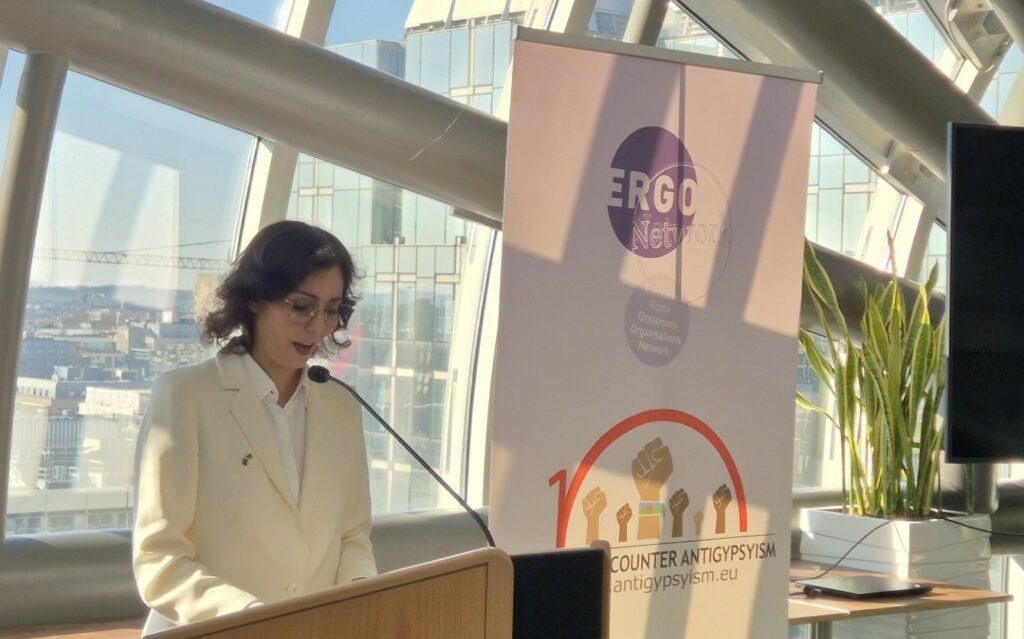The annual Roma Week was launched on Monday, the World Roma Day, with a joint statement by three European Commissioners urging EU Member States and candidate countries to step up the implementation of their National Roma Strategic Framework and combat anti-Roma racism and social exclusion.
In their statement, Executive Vice-President for Social Rights and Skills, Quality Jobs and Preparedness Roxana Mînzatu, Commissioner for Equality, Preparedness and Crisis Management, Hadja Lahbib, and Commissioner for Enlargement, Marta Kos, drew attention to “Roma people's deep-rooted 700-year presence in and contributions to Europe which are integral to Europe's diverse heritage”.
According to the statement, a decisive stance is imperative to combat antigypsyism and social exclusion, and enhance Roma representation and participation in public life. National authorities must ensure that inclusive and tailored support is available to Roma communities.
With an estimated total population of 10 to 12 million, out of which 6 million are EU citizens, Roma Day was an opportunity to honour the diversity, culture, art, language, and contributions of the Roma community to European history and society.
Hadja Lahbib, as Commissioner for Equality, was tasked by Commission President Ursula von der Leyen in her mission letter to “spearhead the implementation of the EU Strategic Framework for Roma equality, inclusion and participation and improve the lives of marginalised Roma communities in Europe".
In a speech at the European Parliament last week, she talked for the first time about the EU Roma Strategy and the Fight Against Discrimination. She admitted that progress on Roma inclusion continues to be too little and too slow.
“It is unacceptable, for example, that the life expectancy of Roma women and men is about ten years lower than for the general population. We need to do more to close the gap between Roma and the general population.”
She also stated that are also positive developments in combating antigypsyism — with antigypsyism being recognised in some national legal frameworks or with the provision of trainings for law enforcement and judges.
“We have assessed the implementation of national Roma strategic frameworks in the report published last September. Member States have strengthened the role of National Roma Contact Points, in staff and financial resources.” She concluded that the EU “must make the best use of EU funds to make a lasting impact in the lives of marginalised Roma communities”.
The Roma Week, organized by European Roma Grassroots Organisations (ERGO) Network, in partnership with the European institutions and other NGOs, aims to raise awareness of the situation of Roma, Sinti, and Travellers in Europe. All relevant stakeholders, including Roma representatives and European youth, are invited.
"The progress described by the three Commissioners in the statement is the kind of progress we need in the EU,” Gabriela Hrabanova, director of ERGO, told The Brussels Time. “But these commitments risk staying on paper without real political will and action at national and local levels. While anti-Roma racism continues to harm Roma daily, strategies must be implemented with urgency and accountability.”
“But this week, we also want to shift the narrative and celebrate the countless contributions Roma have made to our societies. It is a time to honour the richness, diversity, and resilience of Roma input into the European society. We must ensure that people know about this legacy—not just the discrimination Roma face.”
“Only by recognising Roma as an essential part of Europe’s past, present, and future can we effectively tackle antigypsyism.”
The official High-Level Opening of EU Roma Week in the European Parliament was followed on Tuesday by discussions about Roma history and culture in school curricula and the monitoring of EU funding to effectively advance Roma equality and inclusion.
Among other topics, “Intersectional Discrimination and Racism Against Racialised Minorities in Europe” will be discussed at an event in the European Parliament on Thursday, hosted by Swedish MEP Evin Incir. For the full programme during Roma Week 2025, click here.
M. Apelblat
The Brussels Times

